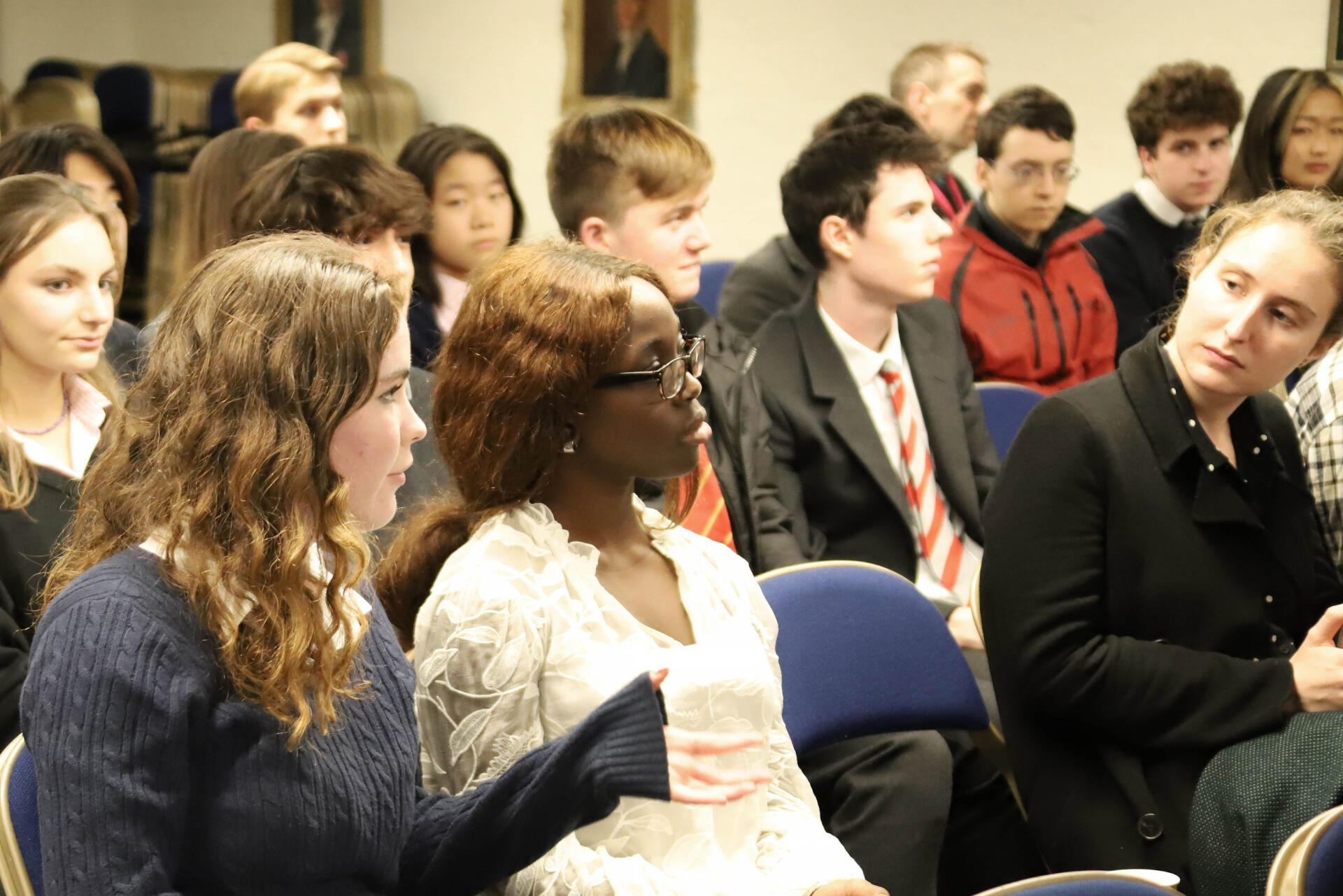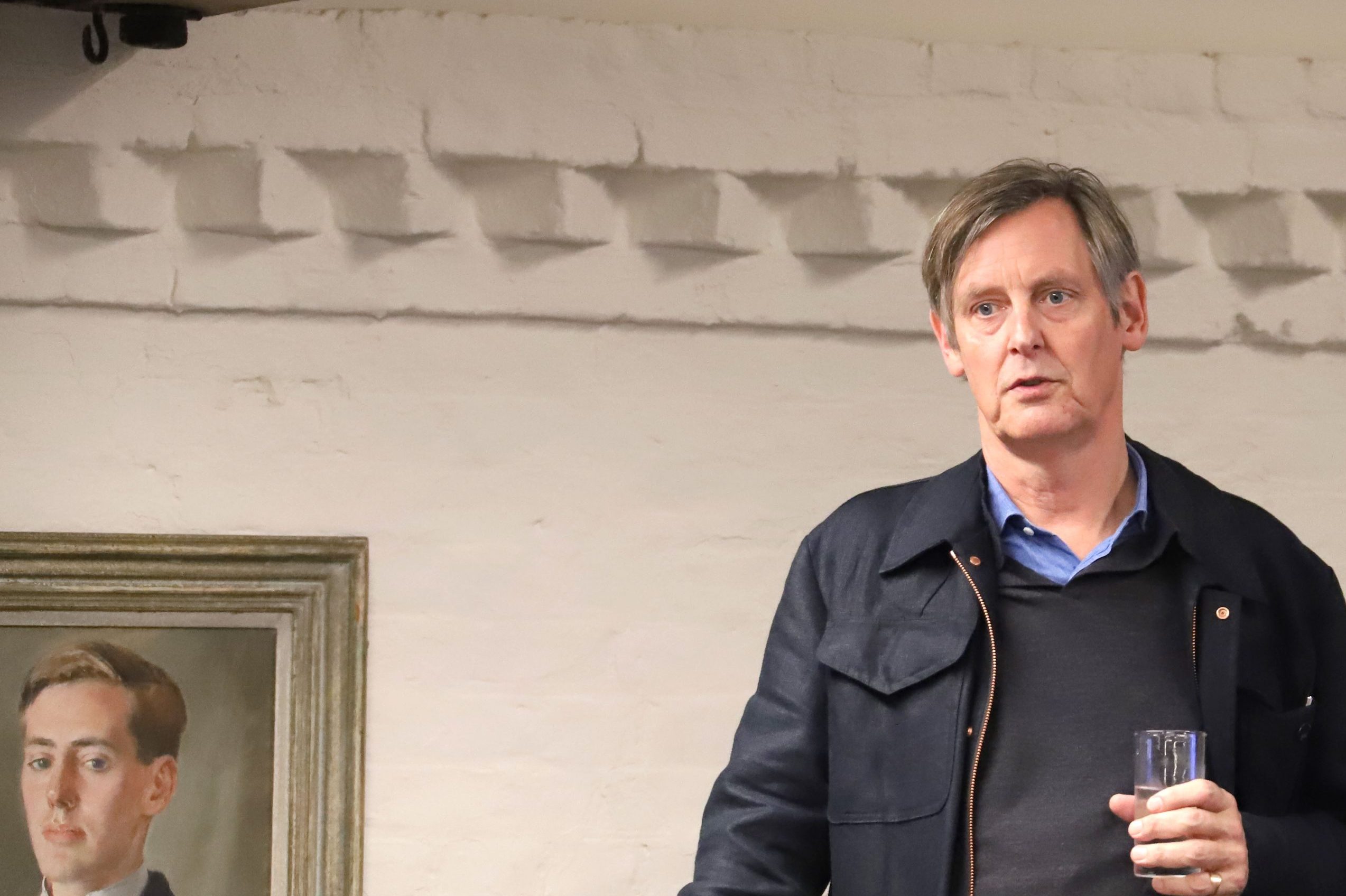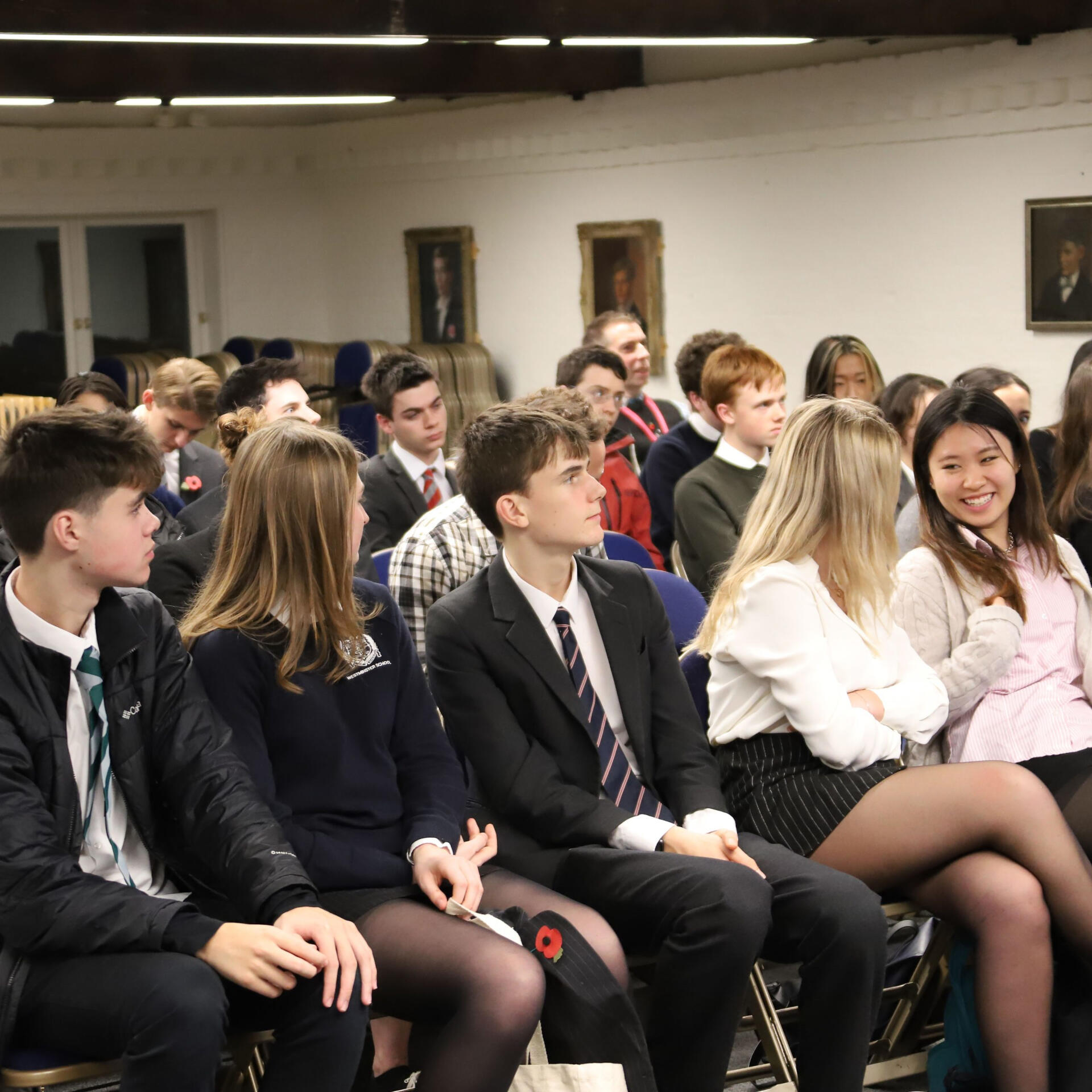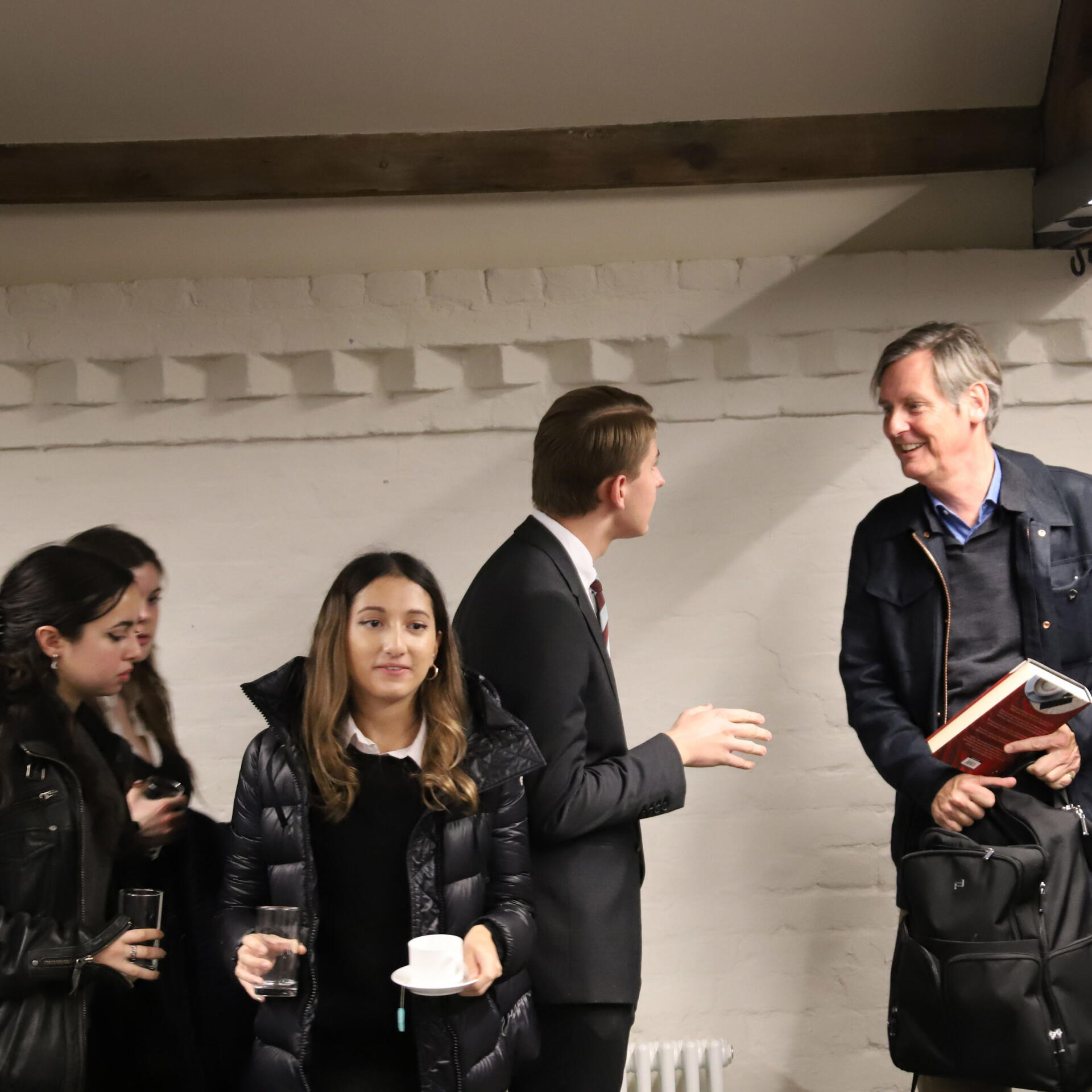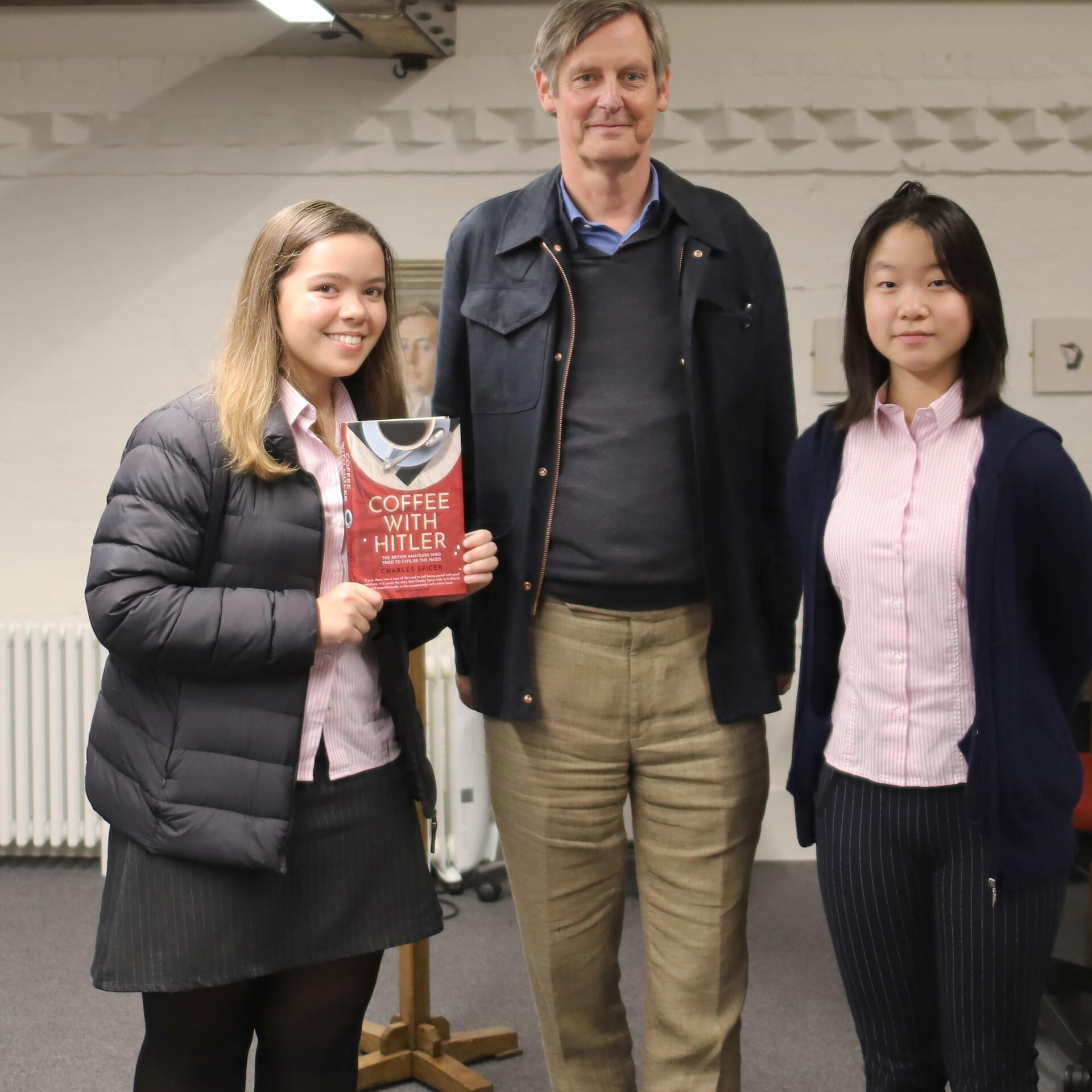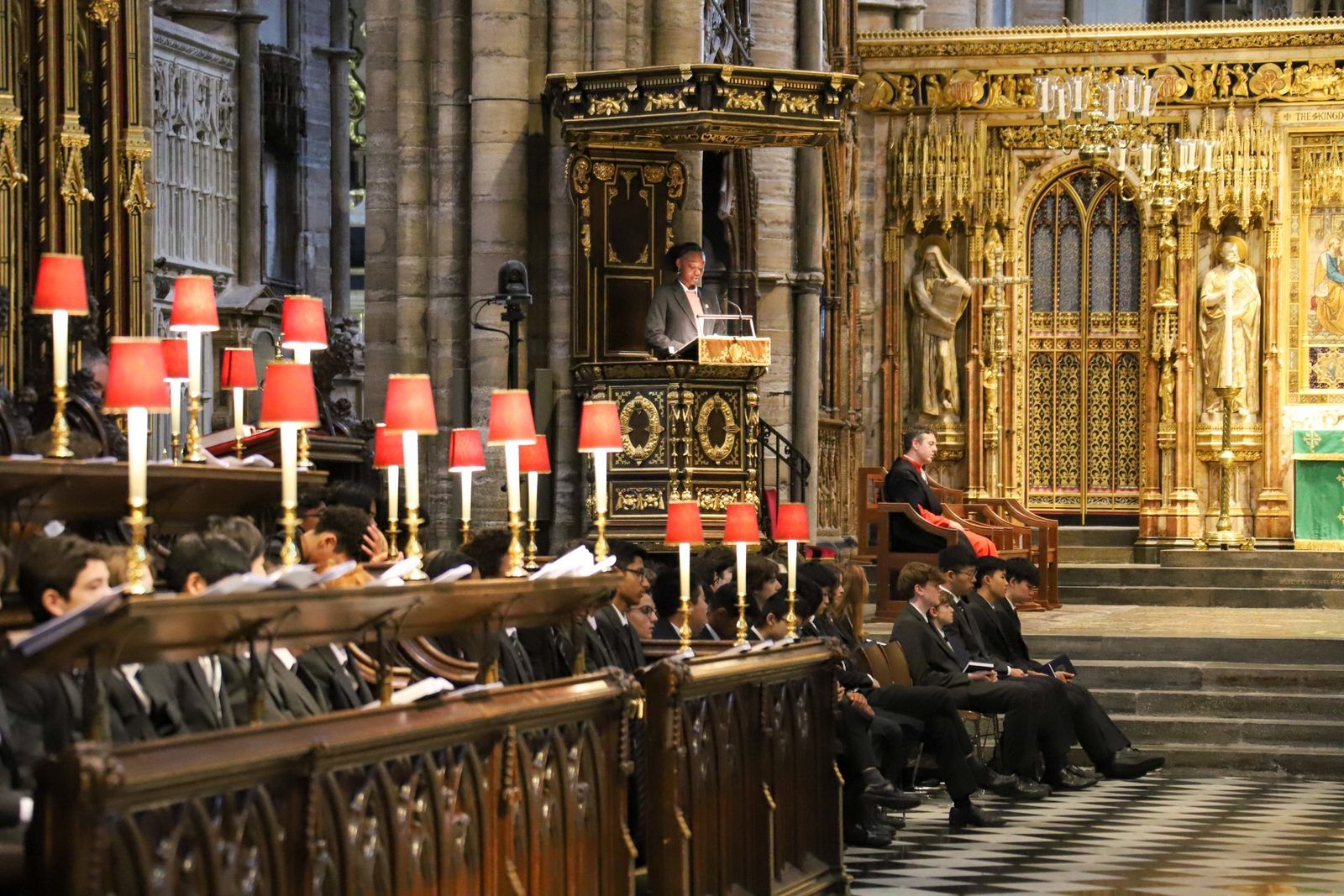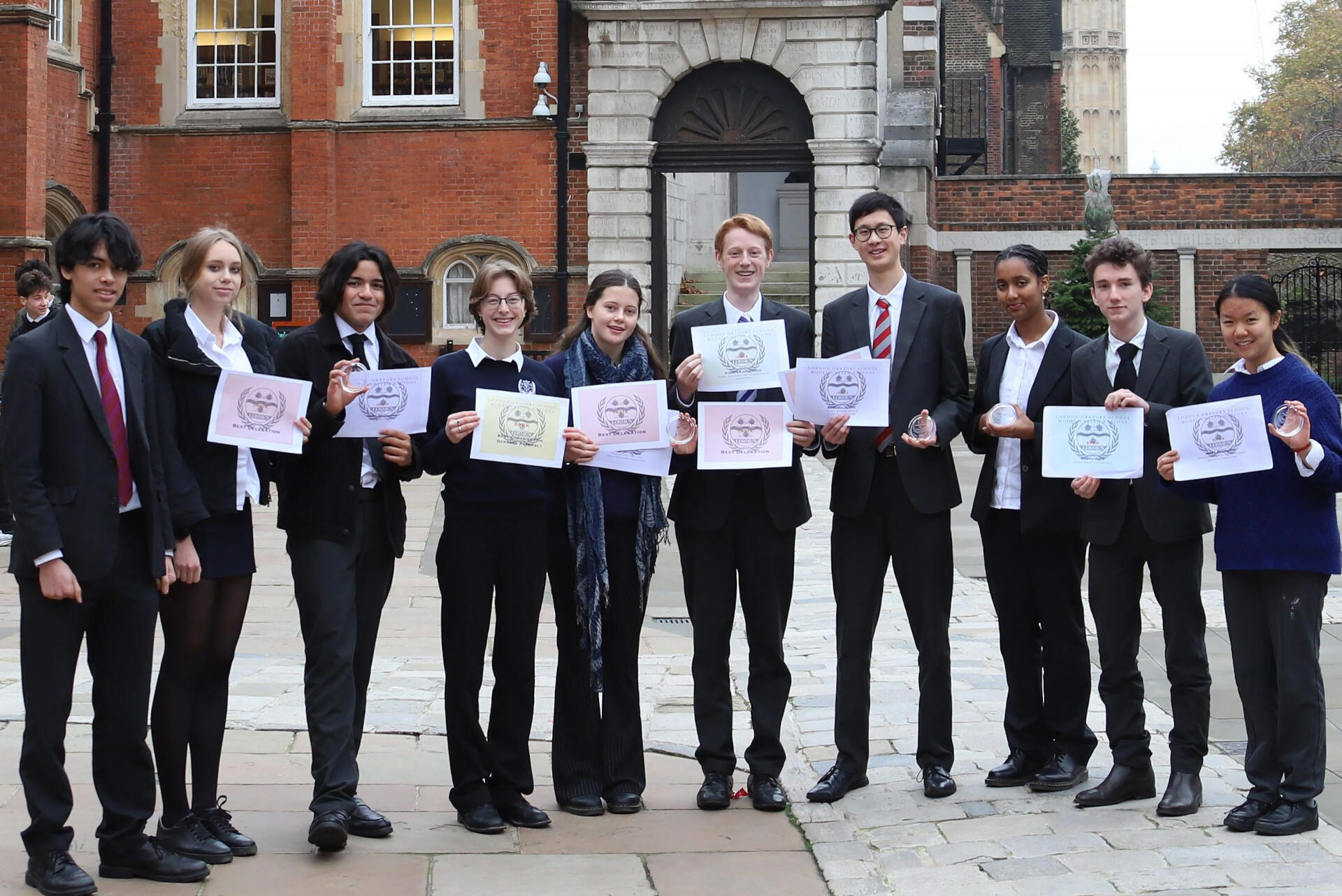Debut author reveals fascinating story of how British diplomats set out to infiltrate the Nazi ranks, to help prevent a second world war.
In a History Society meeting in November, Dr Charles Spicer discussed his recently-published book, Coffee with Hitler: The British Amateurs Who Tried to Civilise the Nazis. Dr Spicer’s ground-breaking research, a product of his recent doctorate, led him to study the missions of three British diplomats who became amateur intelligence agents in 1930s Germany. Speaking in depth about the nature of their assignments, he explained that they aimed to build a rapport with leading Nazis, and to ‘civilise’ them, moving the direction of thought away from the need for conflict and towards a more peaceful relationship with the UK.
The three protagonists, Thomas Philip Conwell-Evans, David Lloyd George and Albert James Sylvester, wined and dined key political figures within the Nazi network, exploiting the German admiration of British culture in an attempt to pacify them and to avert their attention from war. All three men were fluent in German and able to establish strong connections within the Anglo-German Fellowship, most notably befriending Joachim Ribbentrop, who eventually rose up through Hitler’s ranks to become foreign minister in 1938 and whose son briefly studied at Westminster in 1936. In their efforts, the Britons played key witness to the unstoppable rise of the Third Reich.
Spicer’s book looks in depth at life in the 1930s, when British society was still scarred by the memories of the Great War and was very much in favour of a pacifist resolution, which the media served to promote. The pacifism that swept the nation led the Government to focus on active appeasement; the Anglo-German fellowship was established and with it the intention to garner support from the UK’s monarchy, the aristocracy and major banks to invest in Germany’s economy. The hope was that in doing so, Germany would no longer seek to force expansion overseas.
Concluding his talk, Dr Spicer quoted the introduction from his book: “This is a story told from the worm’s eye view, from the perspective of three well-intentioned obscure middle-aged men who, while right at the heart of the unfolding tragedy, struggled to pacify, accommodate and negotiate with the Third Reich in the years before and during the Second World War.”
Following the society’s meeting Amelia (Remove, CC) said: “It was a pleasure to have Dr Spicer come and speak to us at the History Society. His talk cast the Anglo-German Fellowship in a refreshing new light and it was particularly illuminating to hear a new perspective on the appeasement story many of us are familiar with, focussing on the previously forgotten attempts of amateur diplomats who tried not to appease, but to ‘civilise’ the Nazis. We were even able to showcase some of Westminster’s own archive material to Dr Spicer, such as that relating to Rudolf von Ribbentrop, son of Nazi German politician Joachim von Ribbentrop and student at Westminster School.”
Related News Stories
